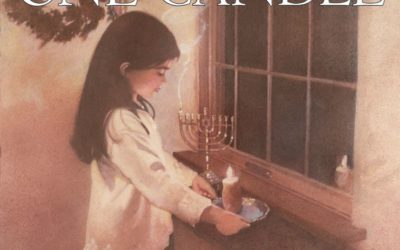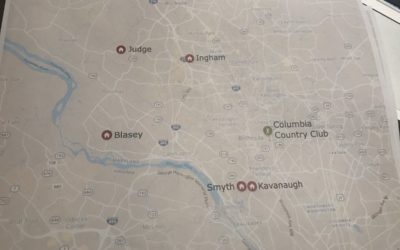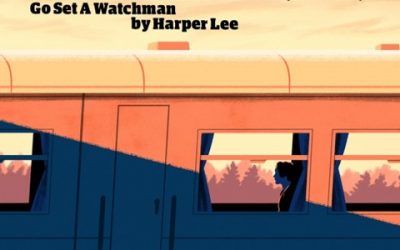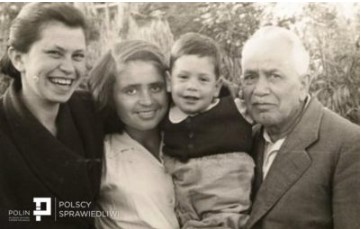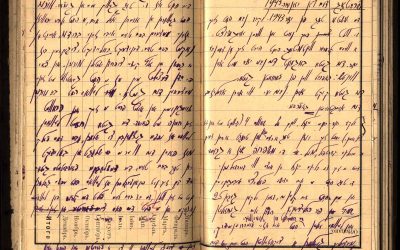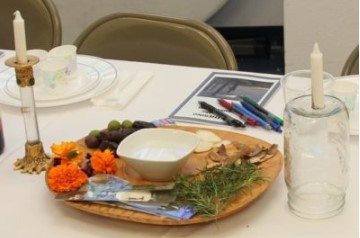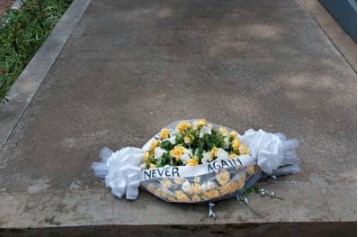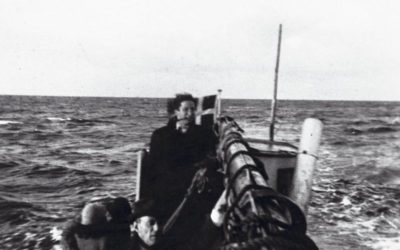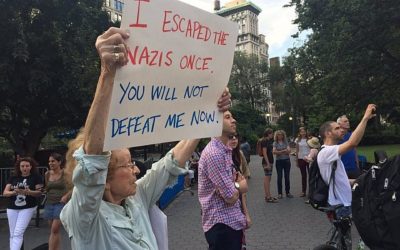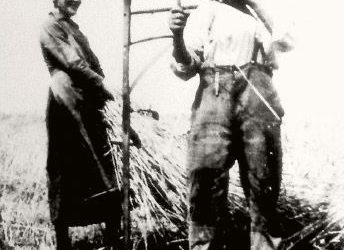“Mom, what do you know about the Holocaust?” You swallow, take a deep breath, play for time, your mind racing. “They’re not old enough to know about this,” you think to yourself frantically. “Can’t I hold on to their innocence just a little bit longer?” They’ll never be old enough. No one is old enough to really deal with the atrocities of the world. I know I’m not. But ignoring evil does not make it go away. Ignoring evil gives it space to grow. We must face evil, and we must help our children to face it. [redirects to the Times of Israel.]
Did you know (that was happening)?
Recent events have made me realize that the question “Did you know?” can be more complicated than it sounds. The story of Brett Kavanagh and Christine Blasey Ford hits close to home for me, literally. I grew up in Bethesda, Maryland. In 1982, when Christine Blasey was attending the Holton-Arms School, I was attending a public middle school a mile and a half away. [Redirects to the Times of Israel.]
For Yom Kippur: Go Set a Watchman
For the sin we have committed against You by running away from the chance to do good in order to make our lives easier. “I can’t live in a place that I don’t agree with and that doesn’t agree with me.” How many of us have had such a thought? How many of us live in neighborhoods of agreement? How many of us safely stay in our like-minded bubbles to avoid conversational conflict? [Redirects to the Times of Israel]
Americans, the Holocaust is not about you
How do we tell the story of the Holocaust? Here in America, the Holocaust is taught from a distinctly American point of view. The story of the Holocaust typically begins in 1938, with a sudden explosion of hatred that penetrates the American isolationism. The story ends in 1945, when brave American soldiers throw open the gates of the concentration camps. “You are free,” they cry, and, the story implies, everyone goes home again. [Redirects to the Times of Israel]
Building communities through the stories of individuals
Storytelling is an ancient art that gives voice to our values and our history. Through our stories, we build our communities. But we can only appreciate the depth of these communities when we tell the stories of the individual people who make up the community. [Redirects to the Times of Israel.]
A new ritual for Yom HaShoah as the fragile window closes
We have reached a tipping point where the Holocaust is changing from an immediate, traumatic memory to community history. At this transition, we have an obligation to frame how we as a Jewish community will commemorate this event for future generations. If we do not create some sort of ritual observance, then I fear that the Holocaust will fade into history, its lessons lost. I brought this idea to a meeting of Jewish educators… [Redirects to the Times of Israel.]
Does “Never Again” still have meaning?
Never again is the anguished cry of Holocaust remembrance, seeking to find a meaning from the suffering. But can we still say never again when genocides have happened again, and again, and again? Does the phrase still have meaning? [Redirects to the Times of Israel.]
“There is no Jewish Question”
In mid-1942, the prime minister of Finland, Johann Rangell, was asked by SS chief Heinrich Himmler about the “Jewish Question.” Rangell responded that there was no Jewish Question in Finland, only respected Jewish citizens. [Redirects to the Times of Israel.]
Why we should compare current events to the Holocaust
As a well-known aphorism tells us, a spurious comparison to the Holocaust devolves an argument to a standstill. But a well-placed comparison to the Holocaust can be a call-to-action, can help to highlight bias and create change. [Redirects to the Times of Israel]
Can doing nothing be justified?
If my neighbors are threatened, as the Jews were in the Holocaust, what should I do? Should I help my neighbors or should I protect my family? If I wait until the threat is obvious, then I will face such a choice. [Redirects to the Times of Israel.]

